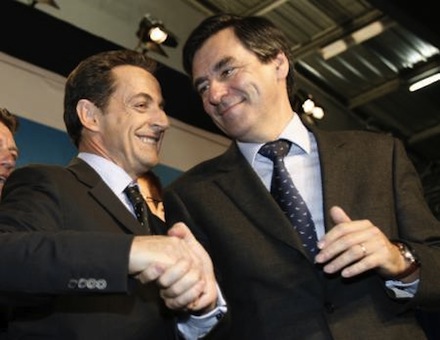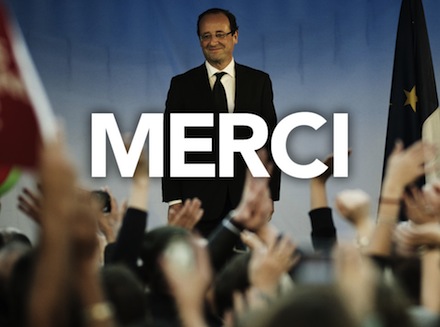
As French voters celebrate the election of a new president in leftist François Hollande, Greek voters returned a muddier verdict in its own election on Sunday, with returns that show the most fragmented Greek electorate in Greece’s postwar history, as voters have abandoned both of Greece’s two major parties, in a rebuke of the bailout that has resulted in savage budget cuts and a fiercely depressed economy.
As of 11 p.m. Greek time, with 40.53% of the votes tallied, the results are as follows:
The center-right New Democracy (Νέα Δημοκρατία) has won 20.29% of the vote, and will take an estimated 112 seats in the Hellenic parliament. New Democracy had been predicted to take the largest share of the vote, which results in an automatic “bonus” of 50 seats — the remaining 250 seats are apportioned to all parties (with over 3% support) on the basis of proportional representation.
The far-left SYRIZA (the Coalition of the Radical Left — Συνασπισμός Ριζοσπαστικής Αριστεράς) has won 15.86% of the vote, and will take 49 seats. SYRIZA has done better than expected, pushing the center-left PASOK (Panhellenic Socialist Movement — Πανελλήνιο Σοσιαλιστικό Κίνημα) into third place with just 13.98%, with a predicted 43 seats.
The anti-austerity center-right Independent Greeks, a splinter group from New Democracy, has won 10.37%, with predicted 32 seats. KKE (the Greek Communist Party) has won 8.33%, with 25 predicted seats. The fascist, nationalistic right Golden Dawn party has won 6.85% and will enter parliament with 21 seats, the first time it will be represented in parliament since 1974.
The far-left Democratic Left, itself a splinter group of SYRIZA, has won just 5.99% and is projected to win 18 seats.
With just 2.89%, the populist Orthodox LAOS appeared to have fallen short of the 3% threshold for representation in Greece’s parliament. The same fate appeared to be in store for the Ecologist Greens, which took just 2.81%.
So what does all of this mean for Greece going forward? Continue reading Greek election results: New Democracy leads, far-left SYRIZA in second, PASOK in third →
![]()



